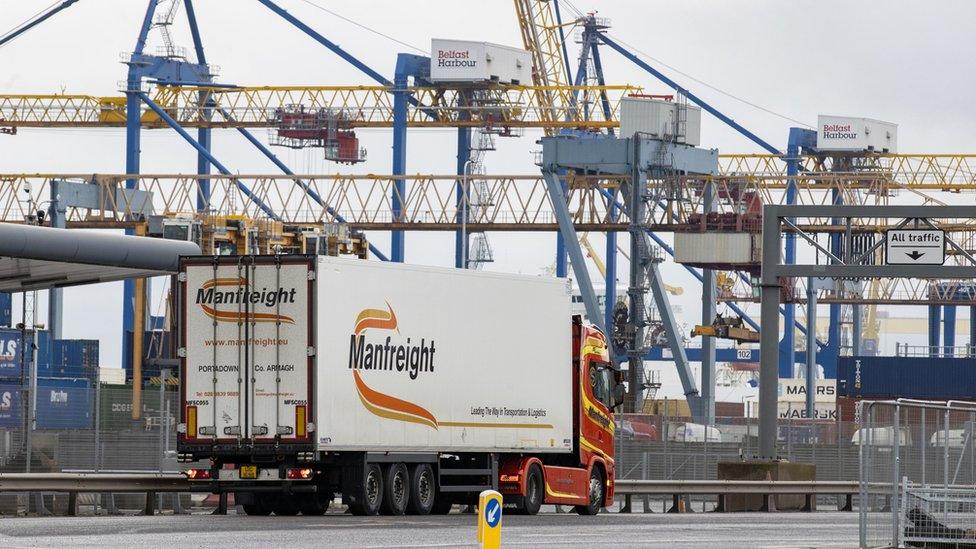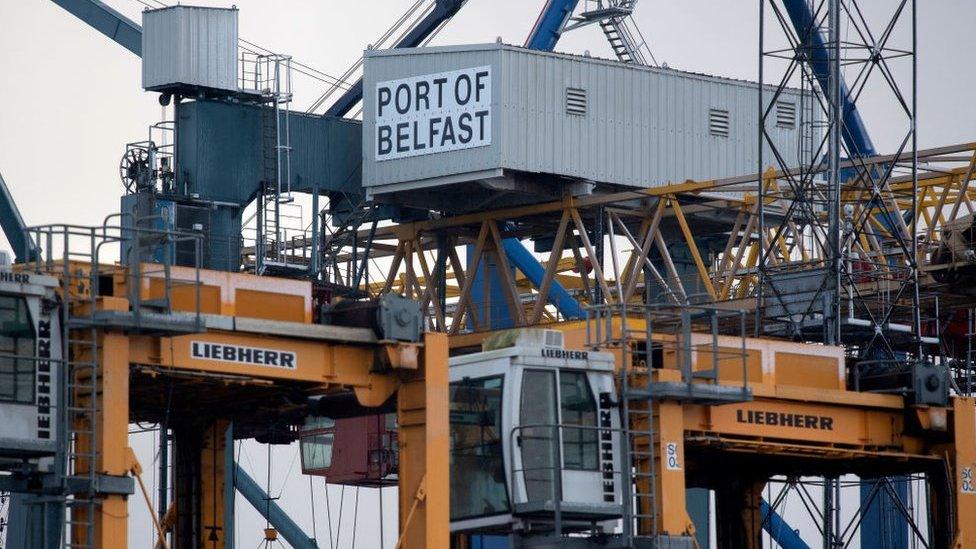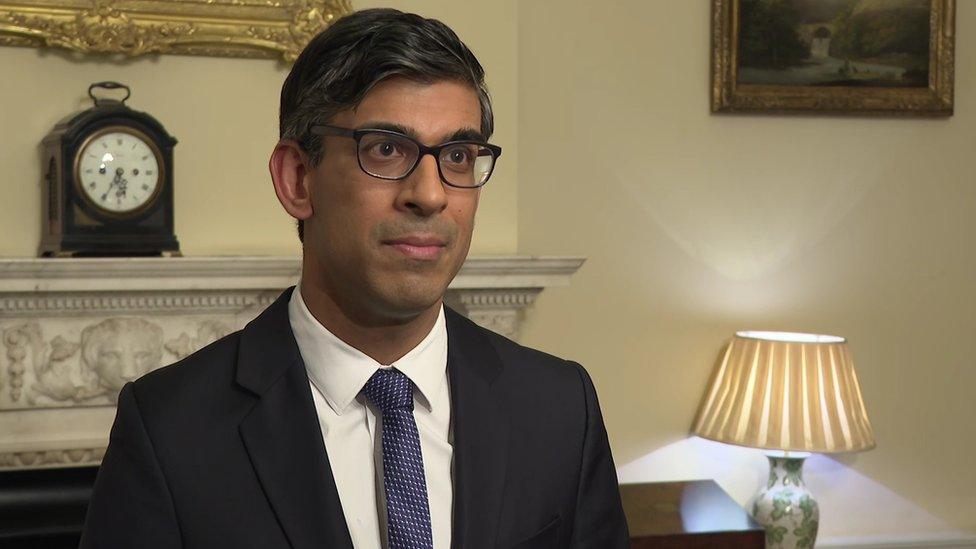Starmer demands MP vote on post-Brexit rules for Northern Ireland
- Published
Starmer: We'll back deal on new rules for Northern Ireland
Sir Keir Starmer has pressed Rishi Sunak to give MPs a vote on any changes to post-Brexit rules for Northern Ireland.
The Labour leader said his party would support a new deal at a Commons vote in the "national interest".
It comes after hopes were raised an agreement could be struck this week, after more than a year of negotiations.
The government is yet to confirm whether MPs will be given a vote on any new set of arrangements that emerges.
Any new deal struck by Mr Sunak could face opposition from Brexit-backing Tory MPs, as well as the DUP, Northern Ireland's largest unionist party.
He is also under pressure to get the DUP on board with any agreement, as it has collapsed Northern Ireland's devolved government in protest against the current rules.
The current rules, known as the Northern Ireland Protocol, were negotiated by Boris Johnson and came into force in 2021.
They introduced post-Brexit checks on goods sent from Great Britain to Northern Ireland, to get round the need for checks at the UK's border with the Republic of Ireland.
The rules have proved highly unpopular among unionists in Northern Ireland, and soured relations between the UK and EU.
British and European negotiators have been locked in talks for over a year to secure changes demanded by British business groups and politicians.
Sources have previously suggested a deal could be sealed this week, although Downing Street says an agreement is yet to be struck.
'Strong enough'
Legally, the government only has to offer MPs a vote on any changes in limited circumstances.
However, it could decide to do so for political reasons, and could face pressure to give backbenchers a say over any new deal.
Speaking to reporters on Monday, Mr Sunak's spokesman declined to say whether such a vote would be offered, adding that the "next steps" would be set out when "outstanding issues" have been resolved.
During a visit earlier in the day, Sir Keir said he thought a vote should take place. "The question now is whether the prime minister is strong enough to get it through his own backbenches," he added.
He pledged that Labour would "put party politics to one side" and vote with the government, so it does not have to rely on support from Conservative MPs.

The protocol has led to checks on goods entering Northern Ireland from England, Wales and Scotland
Negotiators are said to have settled on a "red and green lane" system, where goods from Great Britain destined to remain in Northern Ireland undergo fewer checks.
EU sources insist they have stuck to one of their "red lines" - that the EU's top court will continue to have ultimate oversight of rules governing the EU's internal market.
Any future role for the court is likely to raise opposition from the DUP, and could prove a major sticking point for some Conservative MPs.
Although the DUP only has eight MPs in Westminster, its support is seen by some Tories as a key ingredient in ensuring the success of any long-term changes to the protocol.
Veteran Tory Eurosceptic Sir Bernard Jenkin has said that any deal which does not lead the DUP into resuming power-sharing would be "completely disastrous".
Another leading Brexiteer in the party, Jacob Rees Mogg, said Mr Sunak should regard the party's stance as a "starting point" for talks with the EU.
Many backbench Tory MPs also see the Northern Ireland Protocol Bill that Mr Johnson introduced as an important bargaining chip whenever the UK is trying to wring concessions from the EU.
The planned law would allow ministers to override key parts of its post-Brexit deal with the EU.
Home Secretary Suella Braverman said it remains one of the "biggest tools" to solving issues over trade in the Irish Sea.
It comes after Mr Johnson urged the PM not to abandon the legislation.
Related topics
- Published18 February 2023

- Published17 February 2023
